- Iterate
- Meet The Team
- Seven Progressive Black-Owned Wine Brands in South Africa
Seven Progressive Black-Owned Wine Brands in South Africa
Table of contents
Despite all the challenges and the competition from dominant role-players in the wine industry, there are significant small pockets of opportunity which are now budding for Black owners in South Africa's wine market.
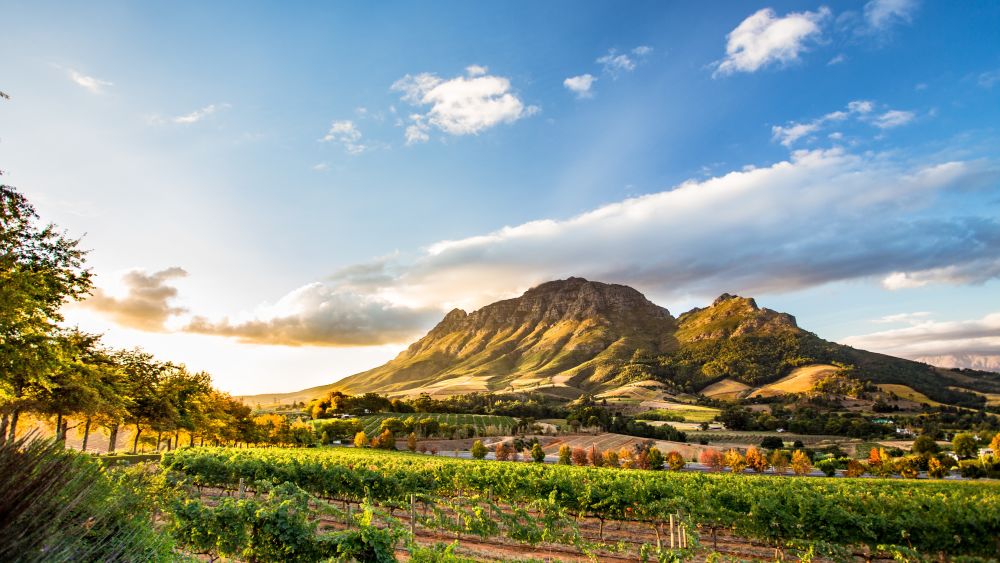
The wine industry in South Africa produces about 3.3% of the world’s wine market, which makes it the eighth-largest wine producer globally and South Africa’s second largest global export. Various factors influence the success of vineyards and wine production, including terrain and soil quality, both of which are strong in South Africa. The mountain slopes and valleys in the Cape winegrowing regions, as well as the Mediterranean-like climate of long, hot summers and wet winters, create conditions ideal for viticulture.
The South African wine industry has historically been thriving since the 1600’s. During the 1900s, some significant role-players were formed, including companies like KWV, owned by Distell, Stellenbosch Farmers' Winery, and wine-producing families like Johan Rupert’s, which have and still do dominate the market.
When South Africa transitioned from the Apartheid Regime to a democracy in 1994, viticulture was one of the main industries that came under scrutiny to transform to allow economic participation of Black people. That transformation has allowed for new Black-owned vineyards and wineries to make significant inroads into the world of viticulture and wine exportation despite the massive up-front costs associated with the industry. To be successful, vineyards and wineries must invest in the best grapes, oak barrels, skilled winemakers, and labelling. Further success in this competitive market is also determined by wine farmers tapping into sustainable distribution channels locally and globally. It goes without saying that success in this industry prior to the country’s democratic transformation can be accredited to generational land ownership, farming knowledge, and expertise and generational wealth. These elements have created significant barriers to entry for the previously disadvantaged Black population in South Africa.
According to VinPro, of the more than 2,800 wine farmers in South Africa, only 60 of them are Black. Less than 2% of them own their own land. Not owning the land means that farms may experience challenges in setting up their own cellars and selling directly to market. Black-owned wine businesses face other huge upfront drawbacks, including lack of access to funding and domestic market opportunities. Despite all the challenges and the competition from dominant role-players in the wine industry, there are significant small pockets of opportunity which are now budding for Black owners in this market. The Org has identified seven promising Black-owned wine brands that have shown notable sustainable growth in the past five years.
Aslina Wines
Founded in 2016, Aslina is a pioneer in South Africa. Founder and owner, Ntsiki Biyela, is known as the first Black female wine-maker in the country. After working for a year as a domestic worker post matriculating, Ntsiki was awarded a scholarship to study wine-making at Stellenbosch University, where she graduated with a BSC in Agriculture (Viticulture and Oenology) in 2003. In 2004, she joined the Stellekaya Winery as a winemaker and her first red wine won a gold medal at the Michelangelo International Wine and Spirits Awards. In 2009, Biyela received the ‘South Africa’s Woman Winemaker of the Year’ award.
Aslina is a self-funded business. With Biyela lacking the funding to develop her own vineyard, she uses grapes from local vineyards. She initially found this process to be very challenging, as wine-growers often had the assumption that she knew little about wine-making since she was Black. Behind Aslina’s successful business was the motivation to serve Black South African consumers, a market of great untapped potential that historically was not catered for by white South African wine-makers, as they were not very big wine drinkers.
Aslina produces four wines and sells approximately 36,000 bottles each year, exporting mainly to the United States, Japan, and the Netherlands. Biyela was also featured in the award-winning documentary The Colour of Wine, which tells a story about South Africa´s transition from apartheid to democracy through the personal journey of four Black winemakers.
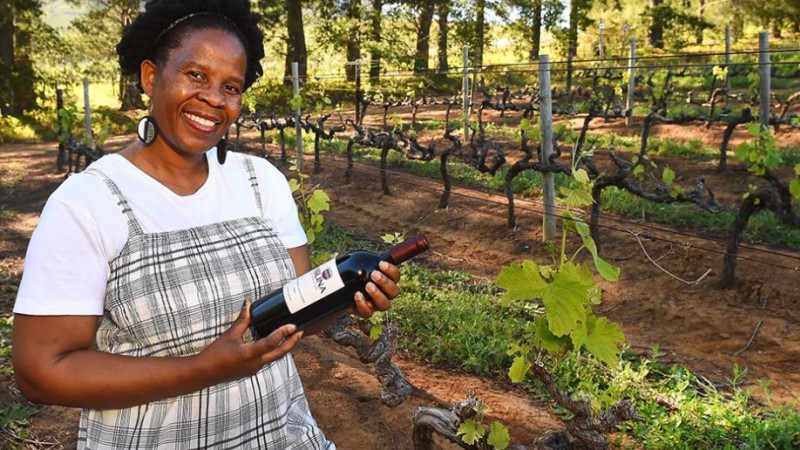
Black Elephant Vintners & Co.
The Org got an opportunity to engage with co-founder of Black Elephant Vintners (BEV), Raymond Ndlovu, who partnered with Kevin Swart and Jacque Wentzel to establish their own winemaking business after he and Swart had sold their boutique financial advisory firm in 2011. Both relocated their families from Johannesburg to the Franschhoek Valley to pursue a better quality of life, and once there, Swart bought a smallholding farm that produced wine. Ndlovu seized the opportunity to invest into the business, given their long track record working together, and they also teamed up with Wentzel, a trained winemaker, to start BEV in 2013.
“We never had any aspirations of making wine on a commercial scale, but when the opportunity presented itself, we thought, ‘Why not?’ ” said Ndlovu.
They made a decision early on to focus less on growing grapes, given how capital intensive the process is, and focused instead on production, marketing, and distribution - where the cash flow is. BEV’s grapes are sourced from the Franschhoek area, which gives the company the liberty to pick and choose the best grapes in the region. Ndlovu outlined how beneficial it was for them to reinvest the money made from selling their finance business, which meant they could get BEV up and running quite quickly, but deployed the capital very wisely. The other key strategic decision they made was to become a premium boutique producer instead of making wine at a large scale. They decided early not to sell their wines in retail stores, but instead focus on specialist boutique wine shops and upmarket restaurants. BEV produces four varieties of Methode Cap Classique and produces 25,000 to 30,000 bottles per annum, with 50% of their production exported to Namibia, the U.S., Denmark, Canada, Germany, the UK, and the Netherlands.
“We´ve positioned our product to be an experiential brand, where we do wine and music pairings, which makes our offering unique and exportable,” said Ndlovu.
His aspiration is to see BEV become a household name amongst young up and coming South Africans and Africans, given the continent will have the youngest middle class globally by 2035, and who he hopes will have a penchant for consuming wine and taking pride in the "Made in Africa" allure.
M’hudi Boutique Family Wines
Owned by the Rangaka family, M’hudi is the first entirely Black-owned wine tourism farm in South Africa. In 2003, matriarch and patriarch Mamsey and Diale Rangaka took advantage of the favourable loans at lower interest rates being offered to Black farmers by The Land Bank and bought a 42-hectare plot of land close to Stellenbosch. With little wine-making knowledge, the Rangaka’s were given a helping hand by their neighbour, award-winning wine-maker Jeff Grier, from Villiera Wines. M’hudi won the Entrepreneur of the Year Award (ETEYA) in 2010 – the first time a wine farm had ever won this award. Their wines have received various international awards, year after year, with the latest being the Gilbert and Gaillard International Challenge awards for four of their wines in 2020.
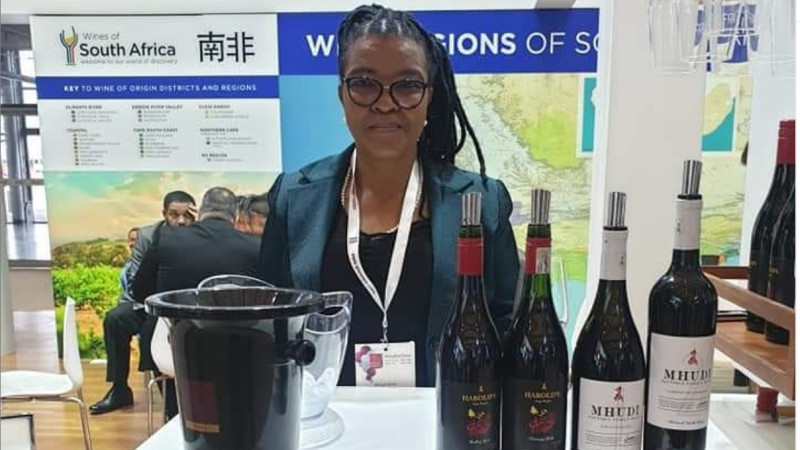
Seven Sisters
Owned by Vivian Kleynhans, Seven Sisters is a first generation winery founded by the seven Brutus sisters from Paternoster, a small fishing community along the west coast of South Africa. As children, the sisters were sent to live with different relatives after their father lost his job and they were evicted from their home. Twenty years later, in 2005, the sisters reunited. By 2007, Kleynhans had distributed her first bottles of wine to the United States, knocking on the doors of the retailers and specialty wine stores to pitch her story.
To fulfil the dream of owning a farm, the sisters approached the Department of Rural Development and Land Reform in 2009 and were given 8,7 hectares of land in Stellenbosch. Thereafter, the Seven Sisters vineyards were established in 2013. The winery distributes to 42 states in the United States, with Walmart being their largest wholesaler. They cultivate a wide range of grapes, including Merlot Cabernet Sauvignon, Pinotage, Chenin Blanc, Sauvignon Blanc, Chardonnay, Shiraz and Cape Blend.
Tesselaarsdal
Berene Sauls, owner of the brand Tesselaarsdal, named her wines after Johannes Tesselaars, a man who left his farmlands to servants and freed slaves in 1810. Sauls joined the established Hamilton Russell Vineyards in 2001 by starting out as an au pair for the Hamilton Russell family at age 19. She then moved to an administrative position on the wine estate and continued to grow, becoming involved in the export, labelling, and warehousing. Having worked in various aspects of the business, she became curious about winemaking. The Hamilton Russell family gave her an opportunity to become the producer of her Tesselaarsdal brand, which is wholly owned by her. After acquiring 16 hectares of land in 2019, Tesselaarsdal hopes to begin cultivating Pinot Noir and Chardonnay in the next seven years.
Distributed to three international markets, including the United States, the United Kingdom, and Norway, Sauls has recently started selling online, which has helped the brand get traction locally. Her wines are popular among high-end South African fine-dining restaurants, such as La Colombe and The Test Kitchen.
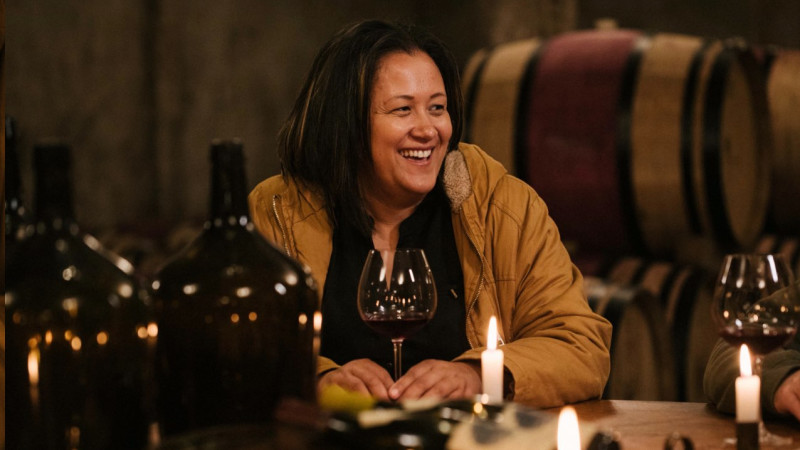
Ses’fikile
The founder of Ses’fikile Wines, Nondumiso Pikashe, has described her experience as an entrepreneurial journey. Growing up in Gugulethu township, she always had an interest in wine and was drawn to the beautiful rolling vineyards in her vicinity of the Cape Winelands region. She often wondered why something in such close proximity felt so foreign to her and her community. Wine-drinkers in Black townships were viewed as at the bottom of the social ladder, and wine-drinking seen as an activity to simply get a person as drunk as possible.
After 11 years of teaching, Pikashe made a career shift. As a result of her background in education, she quickly realised that individuals from disadvantaged backgrounds were not aware of the employment opportunities the winemaking industry offered. She sought to change the negative perceptions towards wine in her community through education and established Ses´fikile in 2004.
In 2006, four Black women from Gugulethu, including Pikashe, started printing their own wine label. Her colleagues connected with the Black Association of Wine and Spirits Industry (BAWSI), which linked them to winemaking workshops, other winemakers, and industry knowledge. Through an empowerment skill share with Flagstone Winery, Pikashe was able to learn everything about wine making. In 2007, however, Flagstone was sold and Pikashe’s partners parted ways. It was only in 2010 that Pikashe re-launched Ses’fikile through the Massmart Supplier Development programme. Ses’fikile means “we have arrived” in isiXhosa, but Pikashe believes that underpinning arriving is the journey of facing the challenges and leveraging the opportunities as Black winemakers, and she therefore sees a future in both wine and teaching. In the schools in her community, many students drop out before finishing school. Her dream is to support the drop-outs and to teach them to be entrepreneurs and take advantage of job opportunities within the wine industry.
PaardenKloof
Launched in 2003, PaardenKloof is one of the very first boutique Black-owned wine companies to cultivate their own vineyard from new plantings. With 23 only hectares of land, the vineyard is fairly small, but the estate does more than produce wine – it has a differentiated selling point, as PaardenKloof aims to combine wine, conservation and lifestyle. Owners Mohseen Moosa, a former legal consultant, and Daphne Neethling, a linguist, have been producing wine since 2007. Although Moosa manages the vineyard, he outsources the wine-making while maturing and bottling the wine in PaardenKloof’s cellar.
Reeling from the impact of a three-year drought in the Western Cape ending in 2019, as well as the 14 week ban on domestic consumption of alcohol in South Africa in 2020 to mitigate the risk of having alcohol related traumas putting a strain on the health system during the COVID-19 pandemic, growth in the South African wine industry has regressed, even with an increase in export value of South African wines during the same period.
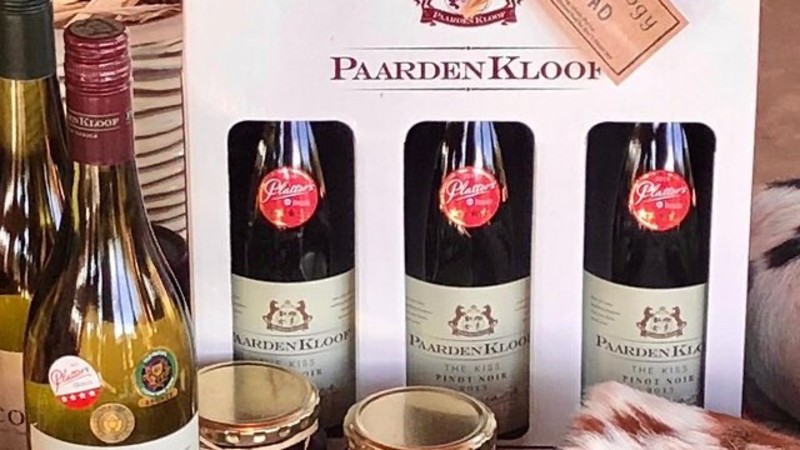
Home to many great, generational establishments founded over the last four centuries, contrasted with new-generation wine-makers in the post-Apartheid era, the South African wine industry continues to transform towards more dynamic diversity. Much work needs to still be done to allow greater access to land ownership and to see more skills transfers and partnerships with the established white owned farms. Ndlovu believes it would be beneficial for people of colour to get exposure to the business of wine making and go through the ropes to overcome the regulatory hurdles. The other key missing gap is visibility and awareness about some of these brands in the local retail distribution channels. It could end up being valuable for Black-owned brands to collaborate on an online marketplace such as Uncorked and Cultured, which serves as a directory of Black-owned wine brands in America.
--
The Org is a professional community where transparent companies can show off their team to the world. Join your company here to add yourself to the org chart!


The ORG helps
you hire great
candidates
Free to use – try today